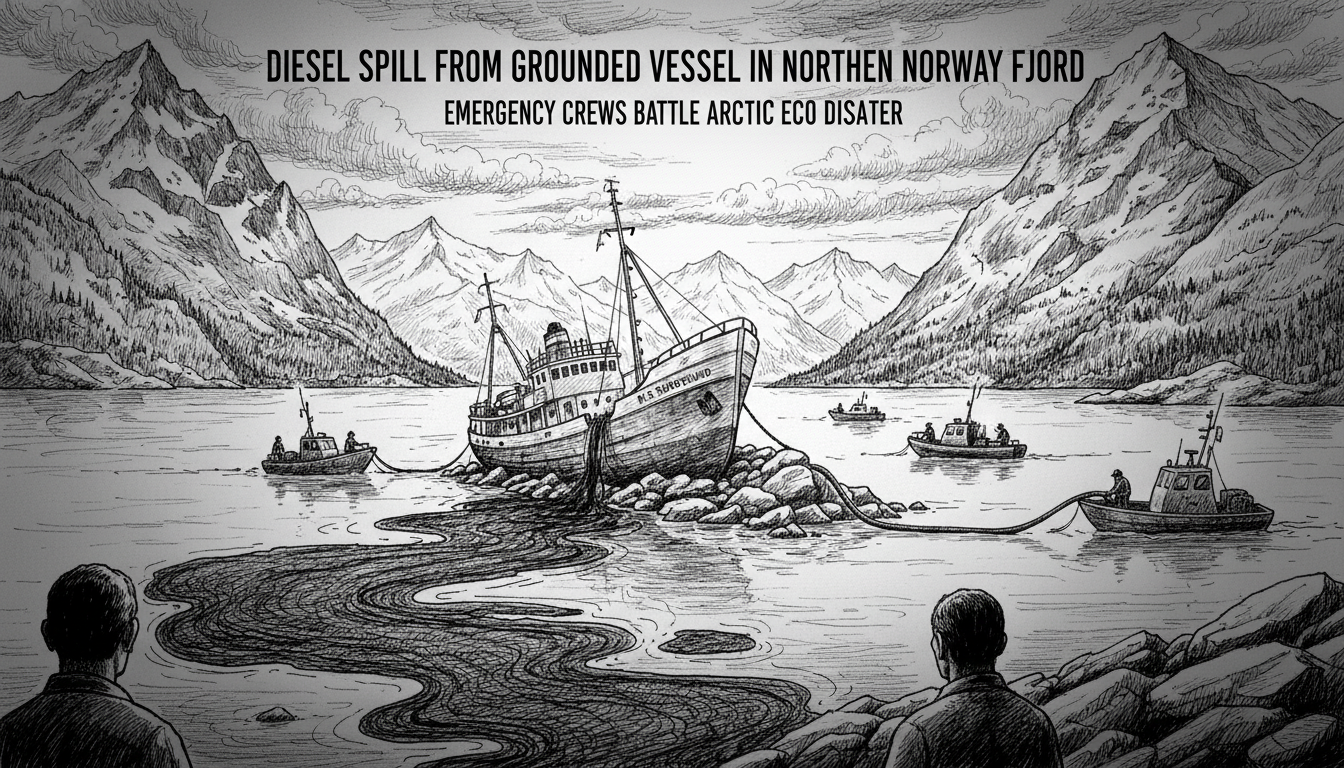Emergency crews are responding to a significant diesel spill in Tjeldsund, Northern Norway. Approximately 4,000 liters of diesel fuel leaked from the vessel M/S Sørøysund during salvage operations. The landing craft originally ran aground on Saturday. The spill occurred on Sunday when workers attempted to refloat the boat.
Fire Chief Roger Berg-Nadden confirmed the situation. His team now works to prevent further environmental damage. They are pumping remaining diesel from the stranded vessel. Specialized tanks capable of holding one thousand liters each receive the fuel. Crews hope to complete this transfer before weather conditions deteriorate.
This diesel spill in Northern Norway represents a serious threat to local marine ecosystems. The Sør-Troms region contains sensitive Arctic environments. Diesel fuel can harm fish populations and coastal wildlife. Previous spills in Norwegian fjords have required extensive cleanup operations lasting weeks.
Norwegian authorities maintain strict environmental protection standards for maritime incidents. The country's coastal administration typically investigates such events thoroughly. Companies responsible for spills often face substantial fines under Norway's pollution control laws. The current operation focuses on immediate containment before addressing long-term environmental impacts.
Emergency teams monitor weather forecasts closely. Calm conditions have helped initial response efforts. Workers remain concerned about potential wind changes. Rough seas could complicate the pumping operation and spread contamination.
The vessel grounding and subsequent spill highlight navigation challenges in Norway's coastal waters. The country's intricate coastline requires careful piloting. This incident follows similar groundings in recent years, raising questions about maritime safety protocols in fjord regions.
Local fishermen and environmental groups will watch cleanup progress carefully. Diesel contamination could affect fishing grounds in the short term. The full environmental impact may not become clear for several weeks. Norwegian officials will likely conduct water quality testing throughout the affected area.
Response teams prioritize removing all remaining fuel from the damaged vessel. Complete diesel removal represents the most effective way to prevent additional environmental damage. The operation continues through the evening as workers race against potential weather changes.

